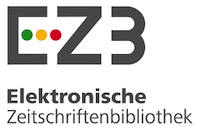Aprendizaje experiencial: fortaleciendo competencias clave para el liderazgo empresarial integral
Experiential learning: strengthening key competencies for comprehensive business leadership
##plugins.themes.bootstrap3.article.main##
Hoy el contexto empresarial, marcado por la creciente complejidad y la volatilidad de los entornos y por la incertidumbre y la ambigüedad que caracterizan numerosos aspectos de la realidad económica, social, política, medioambiental y tecnológica, presenta un desafío constante para las organizaciones empresariales y sus líderes en aras de hacer frente a la multiplicidad de factores que influyen en el desenvolvimiento de las organizaciones. En este sentido la exigencia de una formación integral se erige como pilar fundamental para el desarrollo personal y profesional de los líderes empresariales, quienes deben adaptarse y evolucionar constantemente para enfrentar los retos emergentes y conducir a sus organizaciones hacia la competitividad y la sostenibilidad en un entorno dinámico y exigente.
Descargas
##plugins.themes.bootstrap3.article.details##
CEIPA. (2020). Proyecto educativo institucional.Sabaneta, Colombia: CEIPA.
Kolb, A.Y. and Kolb, D.A. (2017). Experiential Learning Theory as a Guide for Experiential Educators in Higher Education. Experiential Learning & Teaching in Higher Education, 1(1), 7-44. DOI: https://doi.org/10.46787/elthe.v1i1.3362
Ruíz, G. (2013). La teoría de la experiencia de John Dewey: significación histórica y vigencia en el debate teórico contemporáneo. Foro de Educación, 11(15), 103-124. DOI: https://doi.org/10.14516/fde.2013.011.015.005
UNESCO-IESALC. (2021). Pensar más allá de los límites: perspectivas sobre los futuros de la educación superior hasta 2050. París, Francia: Organización de las Naciones Unidas para la Educación, la Ciencia y la Cultura.




































